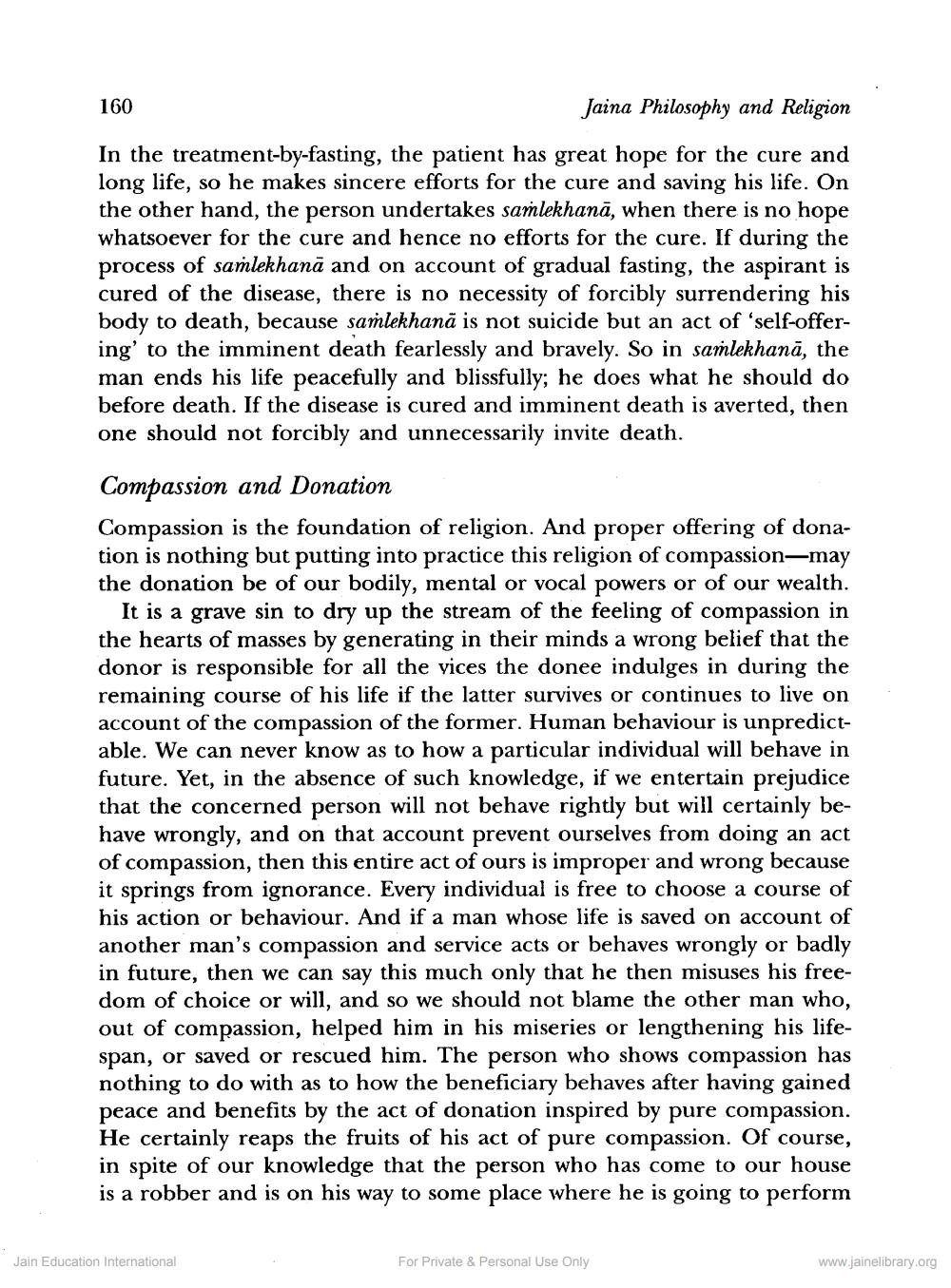________________
Jaina Philosophy and Religion
In the treatment-by-fasting, the patient has great hope for the cure and long life, so he makes sincere efforts for the cure and saving his life. On the other hand, the person undertakes samlekhanā, when there is no hope whatsoever for the cure and hence no efforts for the cure. If during the process of samlekhanā and on account of gradual fasting, the aspirant is cured of the disease, there is no necessity of forcibly surrendering his body to death, because samlekhanā is not suicide but an act of 'self-offering' to the imminent death fearlessly and bravely. So in samlekhanā, the man ends his life peacefully and blissfully; he does what he should do before death. If the disease is cured and imminent death is averted, then one should not forcibly and unnecessarily invite death.
160
Compassion and Donation
Compassion is the foundation of religion. And proper offering of donation is nothing but putting into practice this religion of compassion-may the donation be of our bodily, mental or vocal powers or of our wealth.
It is a grave sin to dry up the stream of the feeling of compassion in the hearts of masses by generating in their minds a wrong belief that the donor is responsible for all the vices the donee indulges in during the remaining course of his life if the latter survives or continues to live on account of the compassion of the former. Human behaviour is unpredictable. We can never know as to how a particular individual will behave in future. Yet, in the absence of such knowledge, if we entertain prejudice that the concerned person will not behave rightly but will certainly behave wrongly, and on that account prevent ourselves from doing an act of compassion, then this entire act of ours is improper and wrong because it springs from ignorance. Every individual is free to choose a course of his action or behaviour. And if a man whose life is saved on account of another man's compassion and service acts or behaves wrongly or badly in future, then we can say this much only that he then misuses his freedom of choice or will, and so we should not blame the other man who, out of compassion, helped him in his miseries or lengthening his lifespan, or saved or rescued him. The person who shows compassion has nothing to do with as to how the beneficiary behaves after having gained peace and benefits by the act of donation inspired by pure compassion. He certainly reaps the fruits of his act of pure compassion. Of course, in spite of our knowledge that the person who has come to our house is a robber and is on his way to some place where he is going to perform
Jain Education International
For Private & Personal Use Only
www.jainelibrary.org




